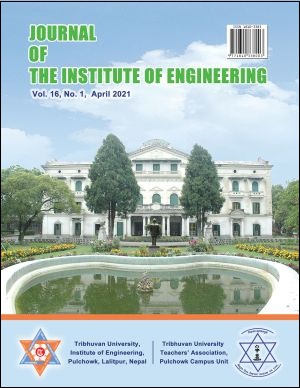Voltage Control and Braking System of a DFIG during a Fault
DOI:
https://doi.org/10.3126/jie.v16i1.36569Keywords:
Voltage control, Braking System, DFIG, RSC, GSCAbstract
This paper describes a voltage control scheme of a doubly fed induction generator (DFIG) wind turbine that can inject more reactive power to the grid during a fault so as to support the grid voltage. To achieve this, the coordinated control scheme using both rotor side converter (RSC) and grid side converters (GSC) controllers of the DFIG are employed simultaneously. The RSC and GSC controllers employ PI controller to operate smoothly. In the voltage control mode, the RSC and GSC are operated. During a fault, both RSC and GSC are used simultaneously to supply the reactive power into the grid (main line) depending on voltage dip condition to support the grid voltage. The proposed system is implemented for single DFIG wind turbine using MATLAB simulation software. The results illustrate that the control strategy injects the reactive power to support the voltage stability during a fault rapidly. Also, the braking system is designed to protect the wind turbine system from over speed. For this purpose, the braking resistors are being used.
Downloads
Downloads
Published
How to Cite
Issue
Section
License
The Copyright is held by Journal of the Institute of Engineering, IOE, TU




